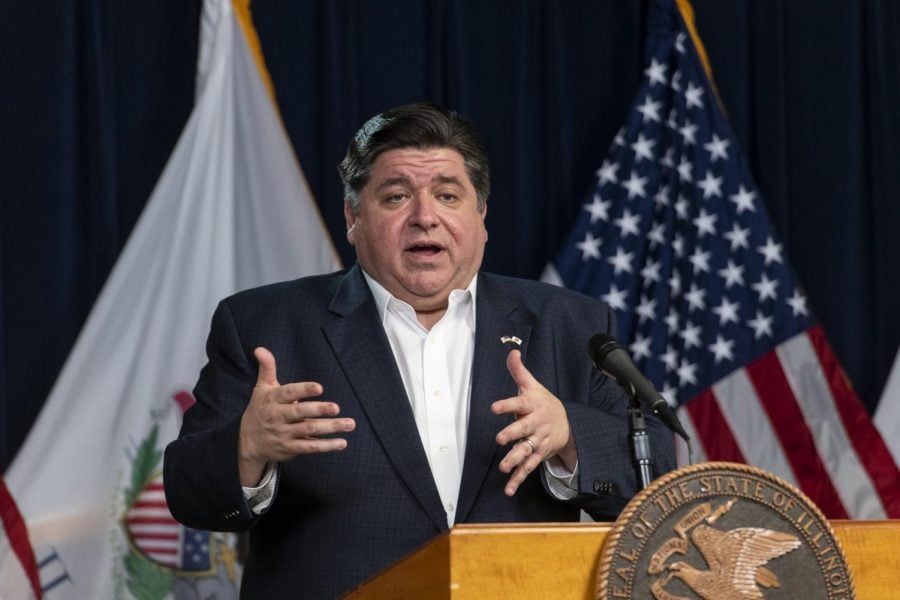7 Midwest states to partner on reopening the economy
Tyler LaRiviere/Chicago Sun-Times via AP
In this April 13, 2020 file photo, Illinois Gov. J.B. Pritzker gives a daily state update on the coronavirus outbreak in Chicago. Seven Midwestern governors announced Thursday, April 16, 2020 that they will coordinate on reopening their state economies amid the coronavirus pandemic, after similar pacts were made in the Northeast and on the West Coast. The latest agreement includes Illinois, Ohio, Michigan, Indiana, Wisconsin, Minnesota and Kentucky.
LANSING, Mich. (AP) — Seven Midwestern governors announced Thursday that they will coordinate on reopening their state economies amid the coronavirus pandemic, after similar pacts were made in the Northeast and on the West Coast.
The latest agreement includes Illinois, Ohio, Michigan, Indiana, Wisconsin, Minnesota and Kentucky.
“We look forward to working with experts and taking a fact-based, data-driven approach to reopening our economy in a way that protects families from the spread of COVID-19,” the governors said in a statement an hour before President Donald Trump outlined to governors a phased approach to restoring normal commerce and services if there is strong testing and a decrease in cases. “Our No. 1 priority when analyzing when (is) best to reopen our economy is the health and safety of our citizens.”
The Midwestern alliance joins pacts on the West Coast and in the Northeast that were announced this week. All together, the 17 states covered by the partnerships are home to nearly half of the country’s population.
Ohio Gov. Mike DeWine, whose early and aggressive response to the virus has received wide bipartisan praise, was named in the joint news release. But his spokesman said that as of Thursday, DeWine had not joined any formal compacts or agreements. DeWine, who said some Ohio business could begin reopening after May 1 as long as proper precautions are taken, said he has been in constant conversation with the governors of all of Ohio’s bordering states.
“I can’t speak for what the other governors are going to do, and I won’t, but we are all in a lot of contact and I think it’s good for the people of our respective states that we’re sharing ideas,” he said.
“Phasing in sectors of our economy will be most effective when we work together as a region,” said the governors, who include five Democrats — Michigan’s Gretchen Whitmer, Wisconsin’s Tony Evers, Illinois’ J.B. Pritzker, Minnesota’s Tim Walz, Kentucky’s Andy Beshear — and two Republicans, DeWine and Eric Holcomb of Indiana. They stressed it does not mean every state will take the same steps at the same time.
“Close coordination will ensure we get this right,” said Evers, who on Thursday extended Wisconsin’s stay-at-home order until May 26.
Holcomb, who could announce Friday whether he will extend or modify Indiana’s stay-home order that is scheduled to end early next week, described the pact as a way of making sure that all of the state leaders know about the actions the others are taking.
“We’re all thinking about that smart restart, opening of our states in a very gradual, methodical way if the numbers continue to hold and the trends continue to hold,” he said.







